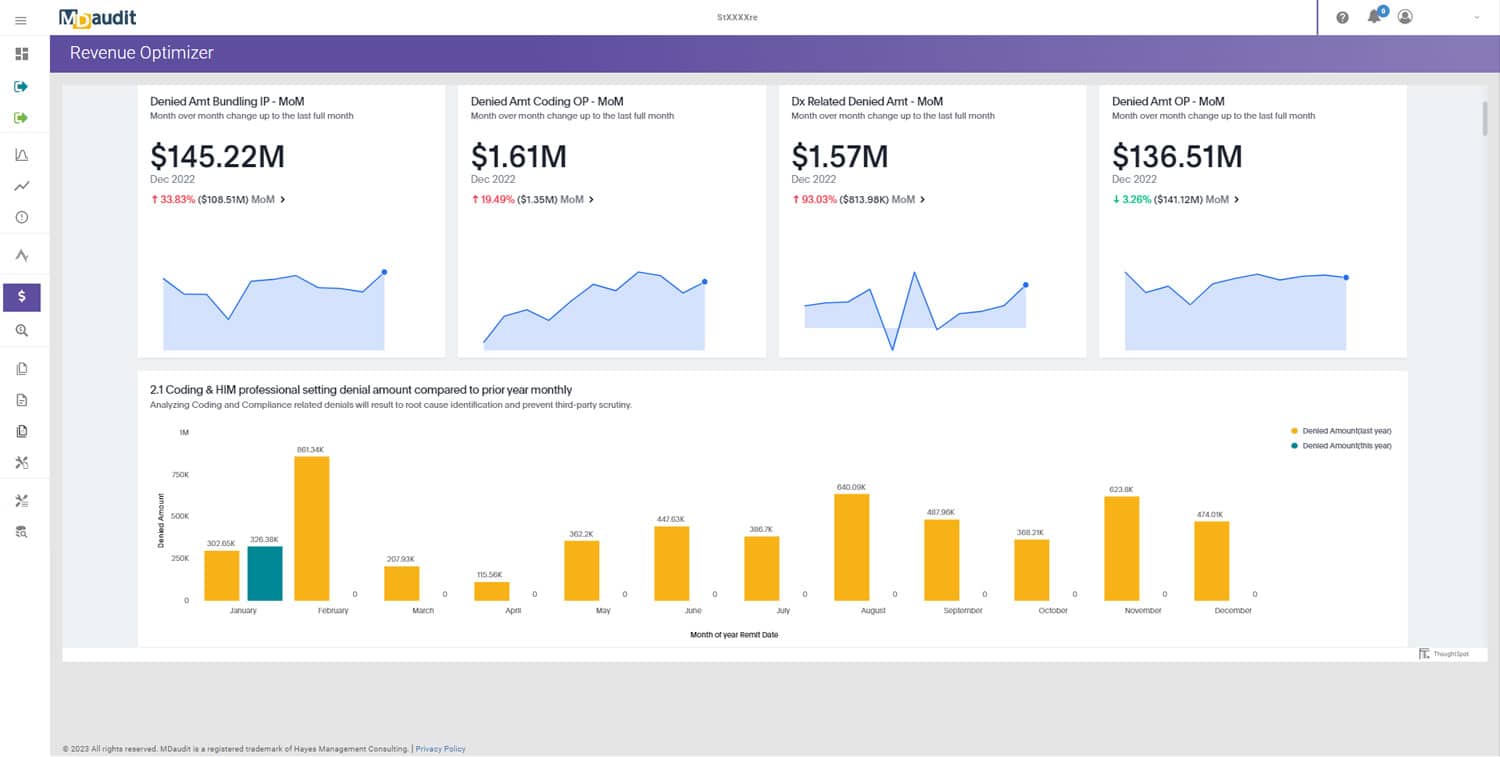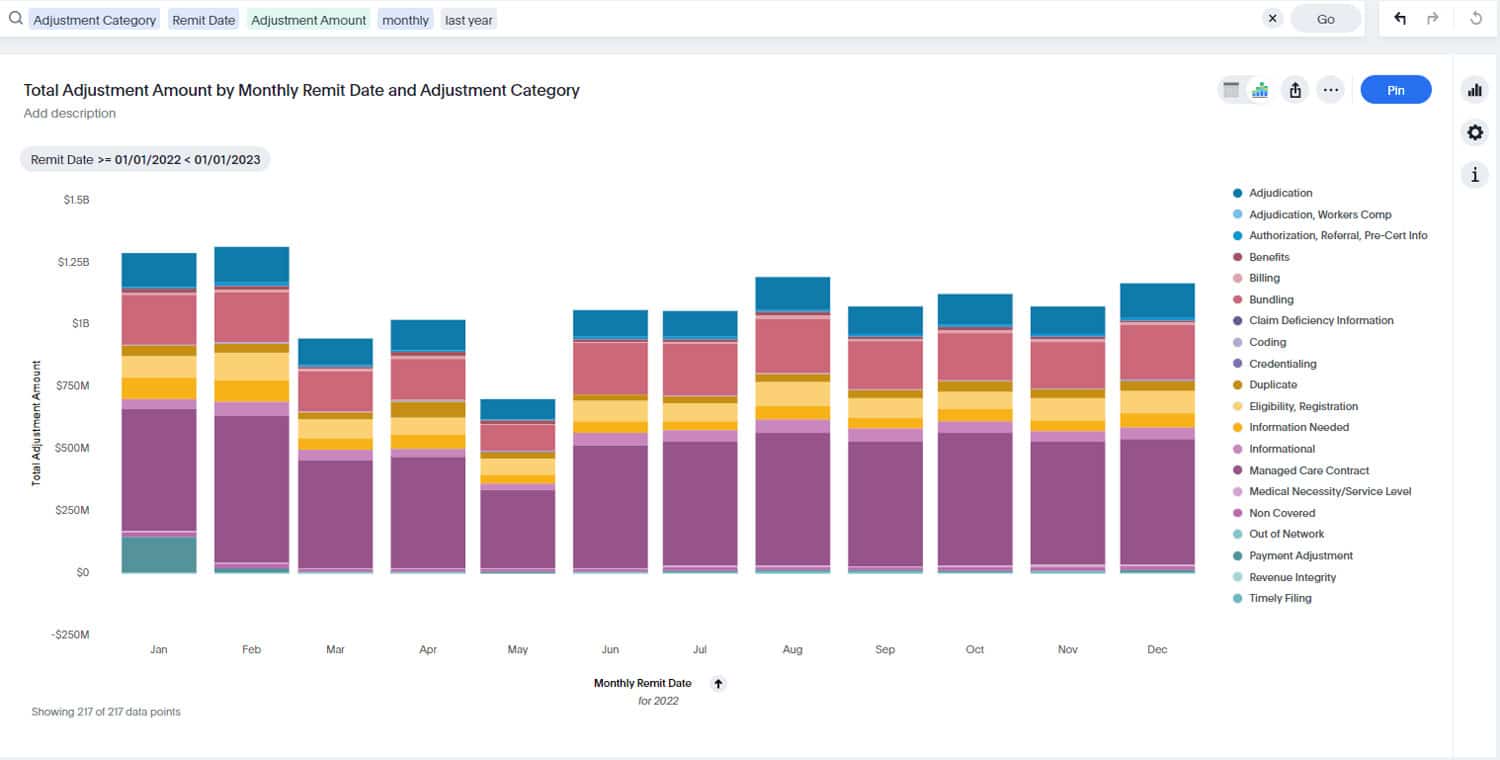Increased labor and supply costs are squeezing margins for providers of all shapes and sizes – from small group practices to hospitals and healthcare systems – which means that every claim dollar counts.
Traditionally, compliance staff has focused on approved claims and auditing charts to ensure that providers, coders, and billers are maximizing revenues while maintaining compliance with appropriate regulations. The idea of initiating risk-based audits based on denials is one that many audit professionals are not yet familiar with.
Denials not only represent lost revenue, but also an opportunity to examine billing processes and educate staff to reduce the incidence of denials. Payers often change decision-making criteria, approving a claim one month, while denying a similar one the next month.
For organizations focused on revenue integrity, audit management does not end when the claim is processed by the payer. Identifying the root causes of denials and rectifying any systemic issues that led to it in the first place are imperative to proactively reduce billing compliance risks and avoid future issues and liabilities.
Denials Leave Money on the Table
Recent research into denials found that more than half (65%) of denied claims are never resubmitted, translating into $3.25 billion left on providers’ tables. Further, the average cost to rework a claim is $25, so even claims that are successfully resubmitted reduce overall revenues.
According to the latest MDaudit Annual Benchmark Report, providers are leaving substantial money on the table if they aren’t getting to the root cause of denials and resubmitting them in a timely fashion.
The report shows that in 2022:
- 12% of professional claims were rejected, at an average charge of $288
- 26% of hospital outpatient claims were denied, with an average charge of $602
- 27% of hospital inpatient claims were rejected, at an average of $5,810
- 10% of telehealth claims were denied, with an average charge of $280
In all cases, the average denial value increased from 2020 numbers by 2%-9.5% depending on the category. Across categories, the top reasons for denials were claims submission and billing errors, duplicate claims, bundling issues, and pre-certification or pre-authorization problems.
Auditing isn’t Limited to Approved Claims
Historically, compliance staff has focused on approved claims, believing that denial data doesn’t fall under their purview. However, every claim is critical, not only to the bottom line but to ensure that compliant billing and coding practices are being followed. Reducing denials plays a critical role in revenue integrity, helping organizations maximize reimbursements while reducing errors and providing timely education to billing and coding staff as well as providers.
Imagine that claims for a certain visit type or procedure are consistently being denied. Rather than fix every individual claim, it makes much more sense to examine the workflow that’s causing the denial, understand where the error is occurring, then fix the workflow or train the appropriate staff member.
Denial audits can occur both retrospectively and prospectively. Retrospective denial audits allow providers to learn from historical data to better understand trends and the root causes of denials, which can lead to process changes that improve first-pass rates and bring faster reimbursement and improved days in accounts receivable. Retrospective audits can be part of continuous monitoring to begin an audit immediately following a denial or roll up denial trend information.
The Role of Auditors is Changing
The goal, of course, is to prevent denials from happening in the first place. Denial prediction tools can help identify the most likely reasons for denials and allow claims to be corrected prior to submission. Users can monitor and report on the most important denial trends affecting compliance and revenue, including the top reasons for denials and common denial categories. Audit staff can also dissect and analyze denials by revenue code, DRG, patient type, procedure code, and diagnosis code to identify root causes and prevent third-party scrutiny.
Revenue integrity has never been more important to the success of healthcare providers. As federal and private payer policies and procedures around claims continue to evolve, the role of auditing staff must change in response. It’s no longer enough to audit claims after they’ve been approved to check for compliance issues. Auditing claim denials helps providers keep cash flow high while promoting consistent practices into how claims are billed and coded.
To help combat denials, the MDaudit Enterprise Revenue Optimizer provides users with actionable denial insights to maximize revenue. Powered by augmented intelligence that brings speed to insights and transparency on the root cause of denials, Revenue Optimizer helps healthcare organizations make more informed decisions and take more effective actions to avoid risk and maximize revenue. With Revenue Optimizer, organizations can remove barriers to revenue integrity to accelerate cash flow and maximize value-based reimbursement.






